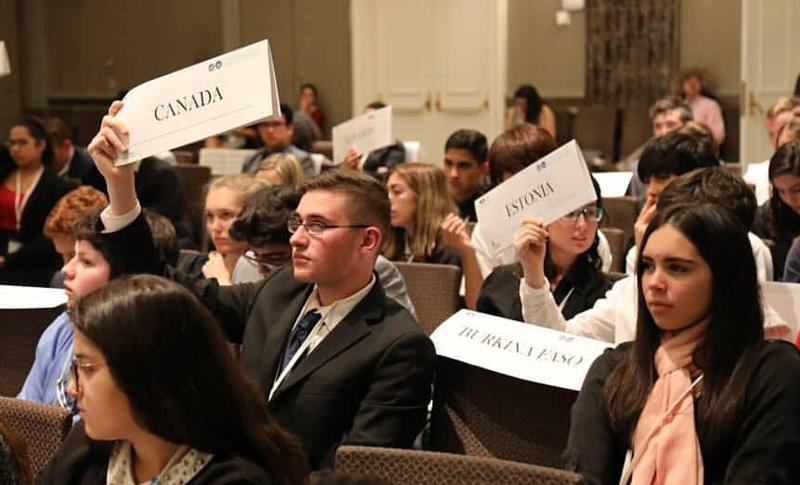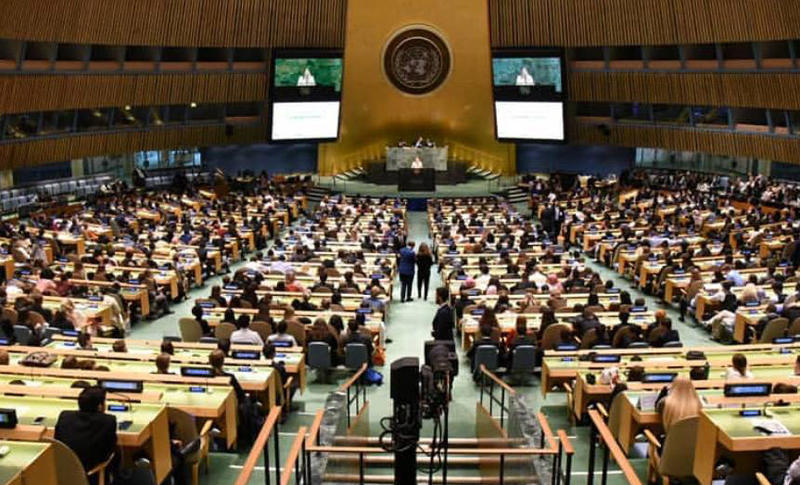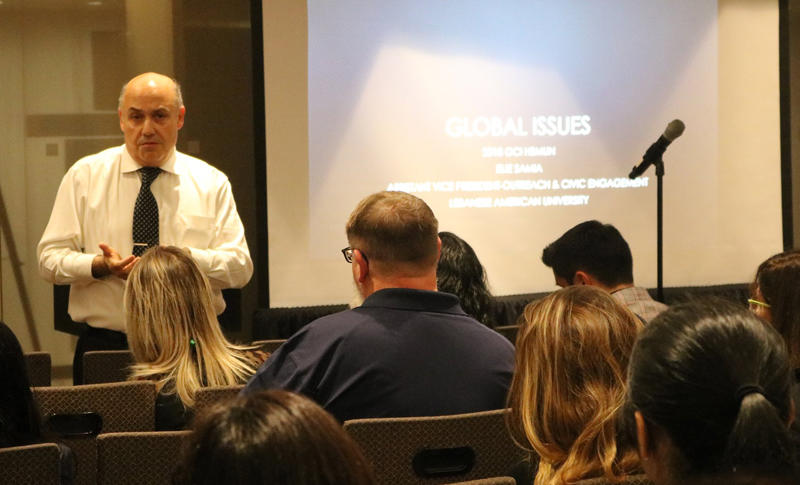An Essential Lesson
LAU leads Model UN Conference for high-school students to help instill leadership and diplomatic skills in future generations.
From May 10 to 12, 1,550 high-school students led by 200 advisors from 87 schools attended the Global Classroom International (GCI) Model UN conference for high schoolers in New York City. Participating students hailed from China, Germany, Japan, Lebanon, Mexico, Qatar, South Korea, Turkey, the United Kingdom and the United States, and broadened their diplomatic horizons while gaining important leadership skills.
During the conference, students formed 16 committees and simulated the negotiation processes at the United Nations through discussing a wide range of global topics such as the legality of drones as weapons of war, election monitoring, greenhouse gas emissions and the 2020 Health Care Climate Challenge. These exercises allowed the students to cultivate qualities that exemplify great leaders, such as self-confidence, courage, empathy and humility.
“Young diplomats do learn, unlearn and re-learn throughout their lives. Model UN shuns and reduces cultural prejudices, broadens intellectual horizons and bestows leadership skills on the students of today and the decision makers, agenda setters and thought leaders of tomorrow,” said Elie Samia, assistant vice president for outreach and civic engagement for LAU’s Department of Student Development and Enrollment Management. “LAU’s partnership with United Nations Association-USA aims at expanding the reach of the GCI program to youth from all over the globe.”
GCI-Model UN is the flagship education program of the Lebanese American University. For the past three years, LAU has led GCI in New York City, which UNA-USA has operated since 1999.
The high schoolers had the chance to interact with key figures in the fields of diplomacy and international relations, including Assistant Secretary-General for Economic Development and Chief Economist in the Department of Economic and Social Affairs Elliott Harris, Director of UNESCO NY Marie Paule Roudil, and Executive Director of World Health Organization-NY Nata Menabde.
Student leader Sangare Mati Brahima, a graduate from Alabama State University, has attended two GCI conferences. She says her first GCI experience impacted her tremendously, and she felt she needed to come back and participate again. Brahima felt that the simulation sessions were key because they offered real-life challenges that “stimulate the way we think and process information as far as creating innovative solutions through the way that the simulations are conducted with the students and the student leaders.”
Another student leader, Imran Ahmad Ali from Punjab, India, is a veteran of Model UN conferences. Ali has participated in over 62, first as a delegate and then as either a chair or a director of a committee. For him, these conferences offer skills that he can apply to his future career. He contended that it made it more likely for the high schoolers to imagine themselves as future leaders by “seeing yourself act as the person you wish to be in ten years,” he said.
Many of the delegates agreed. One delegate, Yoon-Jin Lee of GC Seoul High School in South Korea, wants to be a diplomat or lawyer. Lee shared that the “GCI Model UN is a unique and special experience that helps me gain problem-solving skills by seeing the world and the problems that it faces more objectively and critically.”
Simulation programs such as GCI are part of the United Nations’ larger efforts to establish peace, to secure human rights, and to enable all people to live in dignity by imparting the UN culture to future generations.


